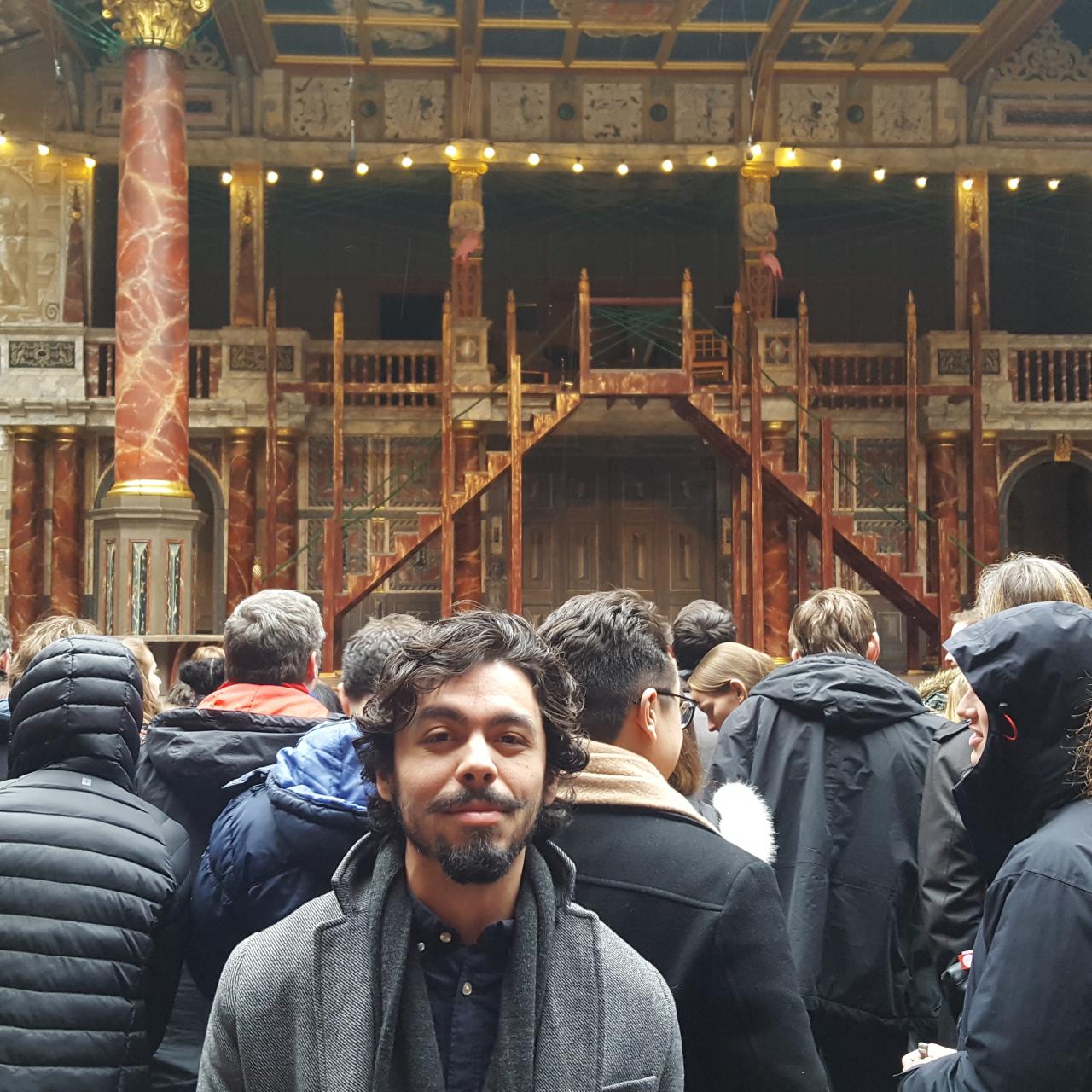Estevan Alemán
Dissertation Advisor(s): Melissa E. Sanchez
"Arresting Scenes: The Cultural Vocabulary of Police in Early Modern English Drama"
Lecturer in Department of English, Comparative Literature, and Linguistics, California State University Fullerton
Office Hours
Estevan Alemán received his Ph.D. in English from the University of Pennsylvania. He holds an M.A. in Medieval and Renaissance studies from Columbia University (2018) and a B.A. in English Literature from California State University Long Beach (2015). He specializes in the literature and culture of the early modern period, especially the drama and poetry of Shakespeare, Marlowe, and Spenser; the history of governance, surveillance, and policing; premodern race and colonialism; gender and sexuality studies; histories of class, vagrancy, and homelessness; and literary and critical theory. Other interests include film and comics, with particular focus on filmic and visual adaptations and appropriations of Shakespeare in the twentieth and twenty-first centuries. He has also served as a co-coordinator for the Medieval and Renaissance studies working group in the Penn English department from 2020-2021.
His dissertation, "Arresting Scenes: The Cultural Vocabulary of Police in Early Modern English Drama," examines sixteenth and seventeenth-century English drama to reveal the early modern English theater's role in making police a coherent concept before the advent of the modern uniformed police force. It investigates the early modern theater's comic and romantic conventions that shaped police officers into literary types, whose proximity to the rogues they surveil in plays reveals the close exchange between police knowledge and criminality since the early foundations of the police in the English cultural imaginary. To this end, this study develops a genealogy that explores and analyzes the cultural language for representing the police avant la lettre. It argues that in the wake of Tudor England's intensification of statute laws that targeted vagrancy as a pressing problem that needed to be surveilled and regulated by the constableship, playwrights made sense of growing anxieties about poverty and disorder, on the one hand, and the logics of police procedures, on the other. They did so by situating police in genres like romantic comedy and city comedy, forms which imagine a return to order: what we might call "comedies of policing" envision officers as a part of the solution to social ills even as they deflate the seriousness of the power they wield. Through readings of canonical and minor plays by Shakespeare, Middleton, Dekker, Fletcher, Massinger, and other Tudor-Stuart playwrights, these chapters show how the police emerge as a recognizable literary type comprised of stock phrases, conventional practices, and claims to immanent authority vested in the office. In this sense, "Arresting Scenes" shows how early modern English drama helped mediate the police as a cultural concept while rendering it palatable for audiences who were routinely subject to police surveillance.

 Department of English
Department of English
